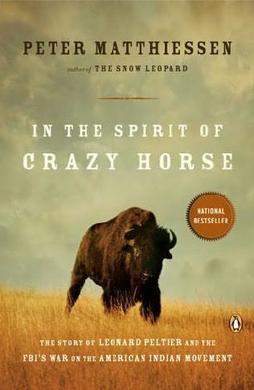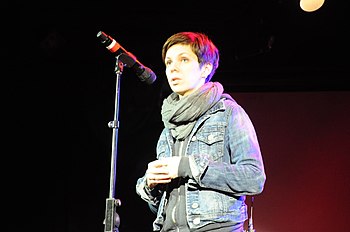| Map showing the second voyage of Captain James Cook. (Photo credit: Wikipedia) |
| Official portrait of Captain James Cook (Photo credit: Wikipedia) |
| Peter Matthiessen (Photo credit: Wikipedia) |
Since Peter
Matthiessen died 10 days ago I have been reading a book of his I had not
previously seen. It is called End of the
Earth, and is an account of two voyages he made deep into the Antarctic on
board a Russian icebreaker which was taking time off its normal duties around the
northern coasts of Russia to undertake some cruising for adventurous people.
I found
the book in my favorite book store in Montreal The Word, run by Adrian
King-Edwards, whom I had chafed when he did not run a Peter Matthiessen
window, as I would have expected. He said it was because they had
not been
able to find enough Matthiessen books to
make a window among their remarkably comprehensive stock of second-hand books,
an inventory that has been built up through the devotion and remarkable
knowledge of the unassuming proprietor.
I noticed
the next morning that they had found one book, at least, and had put it in the window, so I went in and
bought it. “The fact we don’t have his books in stock is a tribute to his
stature, because it means people are not getting rid of his books.,” Adrian
said when I ran into him on the street.
This book,
like almost everything else I have read by Matthiessen, is a wonder. Embarking
into the most remote area on Earth, he treats past voyageurs to the region,
reaching back beyond Captain Cook’s two eighteenth century forays into the
heavy ice, almost as fellow-voyageurs, and tells us the most enthralling
details about each of them. Furthermore, his knowledge of bird-life is so
profound that his pages are filled with descriptions of the few species that are
either born down there, or visit the south during its least ferocious months,
and he seems to be able to recognize immediately the many varieties of
shearwaters, petrels, albatrosses and penguins. He had not personally seen the
giant among the penguins, the Emperor, until his second voyage, but his background
reading had been so voracious that he was able to describe their amazing
life-cycle in detail. Far from only visiting
the region in the more clement weather, the Emperor --- the author says it is
the only bird that never touches solid land in its life ---- breeds in the
middle of the Antarctic winter. In other words, it chooses the toughest
conditions available anywhere on Earth in which to lay its fairly rare eggs,
nurture them against all temperatures, gales and storms, bring their chicks to
life and eventually set them off on their journeys by depositing them into the
ocean, and expecting them to return in a couple of years when fully grown. In
itself a story worth the price of the book.
I had an
especial interest in the subject of this book because he was sailing around in
latitudes not that very far from those
in which I was born. On the return journey, for example, the little ship is
tossed around by one of the most ferocious storms imaginable in the latitudes
of the fifties, as they try to make their way to the New Zealand-owned Campbell
islands, some hundreds of miles south of where I grew up. He talks of the
Roaring Forties, those latitudes across which huge winds blow persistently south
of Australia. They hit the Southern Alps of the South Island of New Zealand,
drop immense quantities of water on the fiordlands of the south, and then pass
on innocuously to my home town, Invercargill, a city --- “the southernmost city in the British Empire”,
we used to call it --- that is always noted in the guide books as having only
one virtue, that is, of being a place to leave on the way to somewhere more
interesting. Directly south of my hometown lies Foveaux Strait, a 26 mile
stretch of turbulent water between the South Island and Stewart Island, which I
remember from my one crossing in my late teens was as rough as I ever expect an
ocean to become.
Matthiessen
doesn’t mention it but Foveaux Strait is home to what those of us from that part
of the world acknowledge to be the world’s finest oysters. But in the context
of his description of the wildlife in Antarctica that should come as no
surprise to anyone, because although one thinks of the Antarctic as the most
barren area of Earth, in fact it is teeming with life, sustains vast colonies
of sea-birds, seals, whales, all of which it feeds by providing huge clouds of millions of krill, the primary food for the immense
whales, grossly fat elephant seals, and
other amazing species.
Even more
astonishing is his description of what is called the West Wind Drift, the biggest
and most powerful ocean current on Earth
that circumnavigates the globe, and is indexed in the book under the title
“circumpolar river…” of which he writes: “…whose depth and width, spanning the
latitudes, make it the mightiest of currents, with a volume equivalent to all
of the Earth’s rivers 135 times over.”
Matthiessen
spends a lot of space writing about “the
Antarctic Convergence”, or Polar Front, that area where the intensely cold
Southern Ocean (a term first used, he notes, by Captain Cook) “heavy and more
dense, sinks hundreds of feet below the surface of the warmer ocean before
continuing a northern ‘creep’ that is detectable by hydrologists all the way to
the Equator and beyond. He goes into great detail about the separation of the
various continents from Gondwana, at the period millions of years ago when they
were all joined, noting that much animal life from those times --- for example,
the strange animals that populate Australia --- got their characteristics and
their particularity from that time.
Although he
has provided fascinating snippets of information throughout the book about his
predecessors over the centuries in Polar voyaging, he devotes a whole final
chapter to estimating their various achievements, or lack of them, in some
cases. He is an unrepentant admirer of Captain James Cook, who set off south
during his Pacific voyages with the hope of discovering the Terra Australis
Incognita at the bottom of the Earth, and had to give it up because of the
barrier of the ice. He admires Shackleton, and particularly the great
scientific adventurer Dr Edward Wilson. He is not an admirer of the fabled
Captain Scott, sold to every child in my
boyhood as a huge hero of the British Empire, but revealed in the 1960s by
Roland Huntford to have been a complete bungler, whose poor decision-making, stubbornness
and false heroics unfortunately doomed not ony himself but his whole party of
brave men, who perished on the way back from his ill-planned, ill-judged,
impetuous journey to the South Pole in 1912, where he arrived only to find that
the more methodical Norwegian Roald Amundsen had beaten them to it.
Matthiessen
returns repeatedly to wondering what is the mysterious attraction of the
Antarctic, and quotes several of the more thoughtful of the explorers of the
past. “A man on such an expedition lives so close to nature,” wrote Apsley
Cherry-Garrard, who wrote the best book about the experience, “ in whom he
realizes a giant force which is visibly, before his eyes, carving out the
world.” Shackleton spoke of “the longing for the ice,” a feeling Matthiessen
himself obviously felt, although he confessed unable to describe it in more
detail.
Since Matthiessen’s
death I have seen some interviews with him reproduced from earlier years, in
which he claimed to be primarily a fiction writer, not a naturalist, and I
certainly agree with one reviewer quoted on the book’s back cover who said that
“I found myself constantly re-reading sentences or paragraphs to savour all of
their rich resonances,” something I found myself doing as well. Matthiessen was
not only a supreme observer of the natural world, but a master of English
prose, as proof of which I end with this
quote:
“I am quite content with the material simplicity of shipboard life. Though
scarcely hermetic, it offers a cocoon free of incoming mail, the clamor of the
telephone, intrusive voices. In my spare, small cabin with its bunk and desk,
its big porthole like a window on the sea,my books, binoculars, warming whiskey
and rare solitude….I am somehow complete. In the sea rhythm and the wind on
deck, I fill my lungs with ocean emptiness and the pure wind circling the
Earth; in hard weather, driven below, I kneel on the spare bunk and peer out of
my window at the waves, awaiting the passage of light-boned ocean birds in
their fragility and their taut strength, astonished anew by those ancient
adaptations that align them with the elements so that waves, wind, and wings all
move as one. And to the degree that I am able to let go of mind and body and
escape all boundaries, I soar with them in the unity of being.”
As someone
has said since Peter Matthiessen’s death, we may never see his like again.











